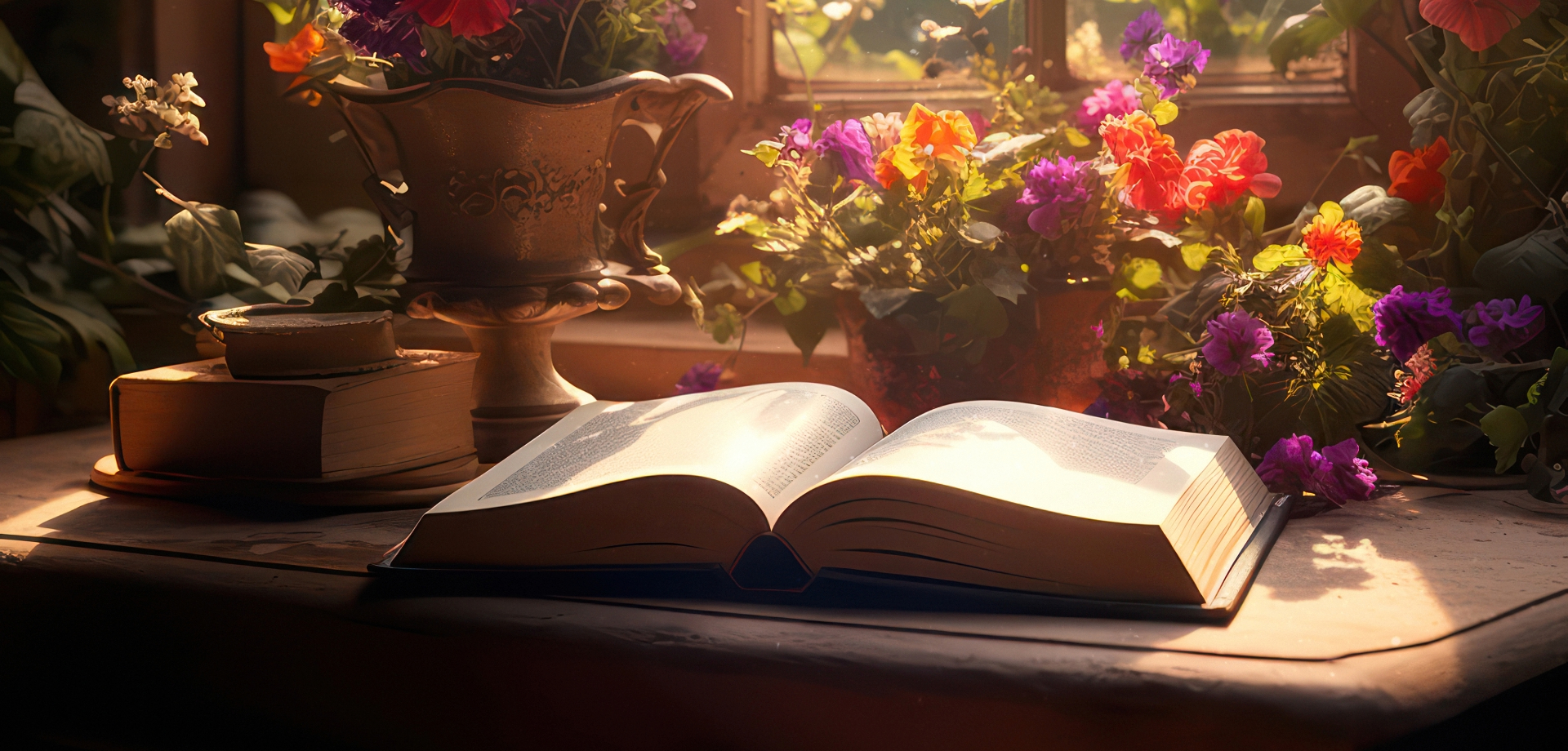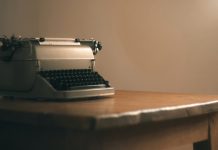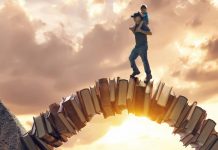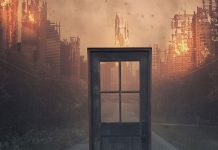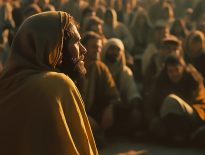I’ll never be able to separate the memories of childhood from that of books. They intertwine like colours in fabrics, in a jumble of real and fantastical, bitter and sweet, joy and guilt.
Years ago, while browsing through a book blog, my eyes landed on a title: “The Sapphire Talisman.” I froze, unable to recall even a fragment of the content of a book that had taken me, as a child, on a fabulous journey through time, among historical characters and long-lost eras.
Minutes of struggle failed to unfurl any memories. Where did that overwhelming wave of emotions spring from, mingling different images and sensations—a quiet deserted beach basking in the sun, the modesty of apples lined up on pantry shelves, the first beat of a lovesick heart, the sleepless nights in my grandparents’ house, where the scent of warm butter, stone-stacked stories, and radio theatre filled the air?
It must have been connected to a time when words served as sustenance, quenching both hunger and thirst, and even sleep. During those journeys through the eternal nights of winter, now living only in my memory, where I discovered an antidote to the fear of darkness, the power of the night’s dragons was swiftly diminished, not just at the first flicker of the candle or the gas lamp, but at the touch of the clustered words nestled on the paper’s surface. There, in the cocoon of ink and paper where I tiptoed night after night, there was warmth and light, and every hardship dissipated with each string of letters I read. I could command the dawn to rise prematurely, watch fierce battles from the safety of the reader’s lodge, wander through places where my feet would never tread, or rejoice in discovering stories locked away in oblivion.
“The Sapphire Talisman.” Or, rather, the ink talisman, sketching such a dear picture: a child, a candle, a book, and the curtain of childhood, edged with letters, falling over the dunes of reality and fantasy, sweetness and bitterness, pleasure and guilt.
Reading: a waste of time or a vital necessity?
As far back as I can remember, my relationship with books has been, from the early years of deciphering the alphabet’s secrets, a mosaic of joy and guilt. One of the roots of guilt lay in the harsh life of the village, with its immutable agricultural commandments, with routines and obligations hard to circumvent, where there was hardly any time or much indulgence for pleasure reading. It took some skill to escape this dance of the fairies and take refuge between the covers of a book. But, above all, it required caution and vigilance, because in the realm of paper, time ran stealthily, as in the tale of Prince Charming, after he was stricken, in the forbidden Valley of Tears, by homesickness.
Certainly, the antithesis between life and reading has a very ancient history. From the astonishment of George Călinescu’s host (“Are you still studying, my boy?”[1]), suspecting that the young tenant’s diligent readings could only be a sign of illness or failure to pass exams, to the scolding received by a renowned writer, as a child, from his mother who often caught him with a book in hand (“Go outside and live!”[2]), we encounter, in different places and times, a whole register of wonder that reality and the world of books can be intimately intertwined.
For many, there has been (and still is) a gap between preparing for life, thus focusing on serious matters, and indulging in the company of books, says Romanian writer Nicolae Manolescu.
However, it is precisely the narrowness of the world in which most of us live, our confinement to a bubble—evident in our tendency to associate with people like us, with whom we have things in common—that makes the need for reading so pronounced.
We need this gateway to an infinite universe of worlds, experiences, events, and interpretations, of solutions tested by others before us. Conversation with exceptional people is a rare event in everyday life, but books allow us to access their reflections and creations at any time, writer John Ruskin says.[3]
“Read in order to live!” said Flaubert, who saw in this immersion in reading a vital human need.[4] In turn, Argentine writer Alberto Manguel believes that reading is an essential act, comparable to breathing, and confesses that his readings serve to map out his world.[5]
For Francesco Petrarca, says Manguel, the book is neither a crutch for the reader’s mind nor a collection of truths that the reader swallows whole due to the authority of the one who enunciates them. On the contrary, the reader sifts through and then retains from the book an idea or an image, integrating it into their collection of ideas formed through reading or direct experience. Through reading, says the Argentine writer, we collect voices from the past that help us better understand ourselves and that we keep for a while, perhaps for a distant future in which we will use them “in bold and unexpected ways.”[6]
Discovering ourselves beneath the book’s surface
Books are like butterflies with their wings glued together, which begin to fly as soon as we open them, carrying us with them through countless inhabited worlds. This metaphor of flight belongs to Romanian writer Mircea Cărtărescu. He observes that this is a flight inside ourselves—one very different from that offered by movies or computer games (which are, in turn, butterflies with a single wing). Movies present identical images to each viewer, but the book is different, says the writer, because it helps you look inside yourself. If the author writes, for example, about a breakup, each reader will melt into the crucible of their mind what they have experienced and what they can imagine about this scene, so in the end, the hundreds of people who will immerse themselves in the same book will read hundreds of books because reading is a unique, liberating experience. It’s as if “your brain hemispheres, wrinkled in their tight bone enclosure, suddenly unfold over the world and you fly fluttering with the two giant wings, written on all sides with neurons.”[7]
Reading is not (and should not become) a form of escapism, because while our minds scratch beneath the surface of more or less familiar cultures and events, the world, as well as our inner universe, take on new meanings.
According to experts, we return changed to the real world, as reading equips us for real life by acquiring social and cognitive skills, developing empathy and creativity, increasing the sense of well-being, and facilitating conversations about sensitive, difficult topics.
The voices of the past and their song about the future
The closure of libraries by local authorities in various places and for various reasons carries a hefty price tag, one that we will all pay in the future, writer Neil Gaiman says. His article discusses the alarming findings of a 2013 study: in England, the generation approaching retirement age has better secondary-level skills—literacy and numeracy—than young people aged between 16 and 24.
“If there are no young readers and writers, there will soon be no old ones. The culture of the written word will be dead, and with it democracy,” writer Margaret Atwood says.[8] This sentiment is echoed by Gaiman: if you do not value good books, “you are silencing the voices of the past and you are damaging the future.”[9]
I believe this was one of the reasons why I tried to capture every whisper of the past that I could access. How else would I have understood what communism represented, having only lived 11 years under this regime, if I hadn’t read Adriana Georgescu’s book, In the Beginning Was the End[10]? The book resembles a Kafka novel, except the absurdity is compounded by the unimaginable cruelty of a regime that crushes all budding hopes after the end of World War II.
Perhaps I wouldn’t have been so deeply struck by the anguish of the brutal separations caused by the Iron Curtain if I hadn’t come across the overwhelming stories documented by author Anna Funder[11]—such as the one where two young parents try, unsuccessfully, to escape from East Germany to see their baby hospitalised in critical condition in a West Berlin hospital. If I hadn’t read the heart-wrenching letters exchanged by Pia Pillat[12] after her escape abroad with her family, letters that almost invariably end with the phrase “with infinite longing,” would I know what it means to be pierced by the longing for a loved one who is alive but whom you still won’t be able to embrace even once?
How would I have known that communism wasn’t actually promoted as an ideal—a paradise for the working people—not even by its theorists, and how would I have understood that there was no hiatus between Nazism and communism, as we had been misinformed for decades, if I hadn’t browsed through the Dictionary of Communism?[13]
If I hadn’t read André Glucksmann,[14] Anne Applebaum,[15] and, of course, Solzhenitsyn,[16] how could I have suspected how many similarities existed between Nazi and Soviet camps? How could I have imagined how long-lasting the latter were (unlike the Nazis, the Soviets had nearly seven decades and a generous Arctic space to re-educate—or rather, liquidate—their enemies)?
The voices from the past that Svetlana Alexievich gave voice to in Second-Hand Time helped me understand why people who have tasted freedom still mourn their executioners, why they consider democracy a garment too loose and useless, and how incredibly difficult it is to change the mentality of someone who has “the empire and socialism imprinted in their cortex.”[17]
Therefore, I read (more than just history) to better understand the world I live in, its inner workings, and the direction it is heading. I seek the companionship of books that reflect essential truths about human nature. I also read because my life isn’t particularly thrilling, and I find resonance—albeit on a different scale—in the words of writer Jorge Luis Borges: “Few things have happened to me and I have read a great many.”[18]
Last but not least, I consider reading an exercise in humility. Because I know how little I know and understand about what is happening within me and around me, I feel an organic need to call upon the fluttering wings of books for help. And because I ultimately admit—following in the footsteps of those who have feasted on huge slices of knowledge—that “my own eyes are not enough for me, I will see through those of others.”[19]
Carmen Lăiu writes about the joy brought by journeying into the realm of books, detailing the reasons why we need the lens of reading to understand ourselves and the world we live in.












